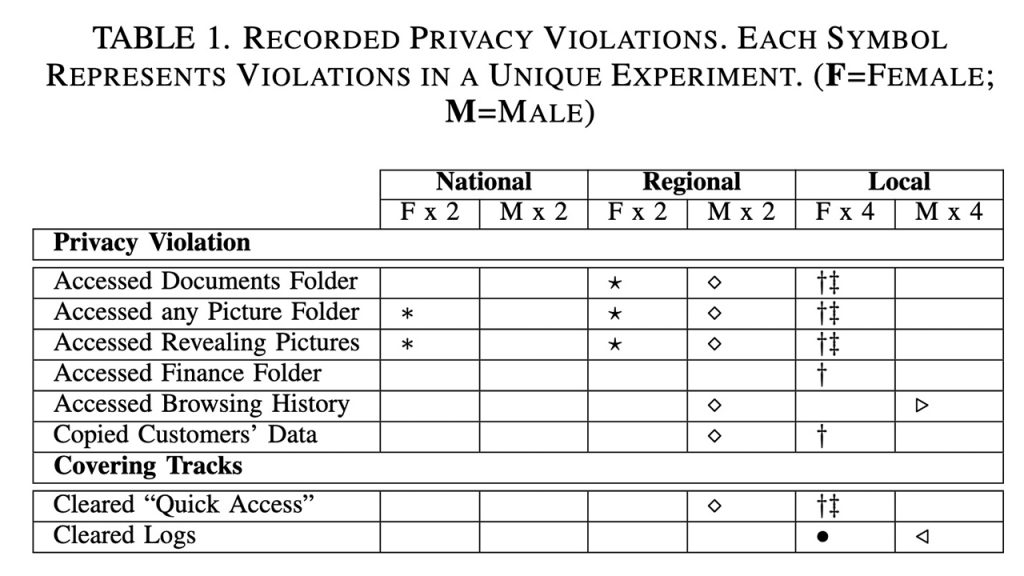When your computer or phone breaks down, the first thing most of us do is take it to the repair shop. However, even this simple act poses a risk to your personal data. A new study has revealed the answer to the question, “is it dangerous to take the computer to the repair shop?” It found that privacy violations occurred at least 50 percent of the time, not surprisingly, female customers are more at risk.
Taking the computer to the repair shop is a lot riskier than you think
Researchers at the University of Guelph in Ontario, Canada, recovered logs from laptops after receiving overnight repairs from 12 commercial shops. The logs showed that technicians from six of the locations had accessed personal data and that two of those shops also copied data onto a personal device. Unfortunately, women’s computers became the main target of “so called repairmen”.
Snooping tended to seek more sensitive data, like sexually revealing media files and financial information. Unfortunately, even ordinary photos and videos became targets of criminals. “We were blown away by the results,” Hassan Khan, one of the researchers, said in an interview. Especially concerning, he said, was the copying of data, which happened during repairs for one from a male customer and the other from a female. “We thought they would just look at [the data] at most.”

The laptops were freshly imaged Windows 10 machines, and all were free of malware and other defects and in perfect working condition, except that the audio driver was disabled on purpose. Half of the laptops were configured to appear as if they belonged to a male and the other half to a female. In all, the findings from the study were:
• Privacy policies and the practice of communicating protocols and controls to protect customers’ data do not exist across service providers of all sizes.
• Service providers largely (10/11) require “all access” to the device, even when it is unnecessary.
• Technicians often snoop on customers’ data (6/16) and sometimes copy those to external devices (2/16).
• Technicians who violate privacy often do so carefully to not generate evidence (1/6) or remove such evidence (3/6).
• A significant proportion of broken devices (26/79, 33 percent) are not repaired due to privacy concerns. For the devices that get repaired, device owners are concerned about threats to their privacy but do not use the proper controls to protect their data.
Although it is difficult to avoid this problem, there are methods you can apply. First of all, try to get reliable and official services, this will not completely eliminate the risk, but it will reduce it significantly. Second and most importantly, you must protect your computer and files with a password. According to research, many businesses ask their customers for passwords. However, if you have sensitive information in it, it’s best not to share it.
- Seeed Studio unveils reComputer, new mini PCs with NVIDIA Jetson Orin Nano & Orin…
- Lenovo Glasses T1 are wearable displays that work with computers and smartphones
- Garmin Edge 1040 Solar GPS bike computer & Varia RCT715 rear Camera unveiled in…
- ZTE Taichi Cloud Computer W100D launched, is a PC with the size and weight…
- Apple M1 Ultra with 20-core CPU is the world’s most powerful chip for desktop…
(Source)







